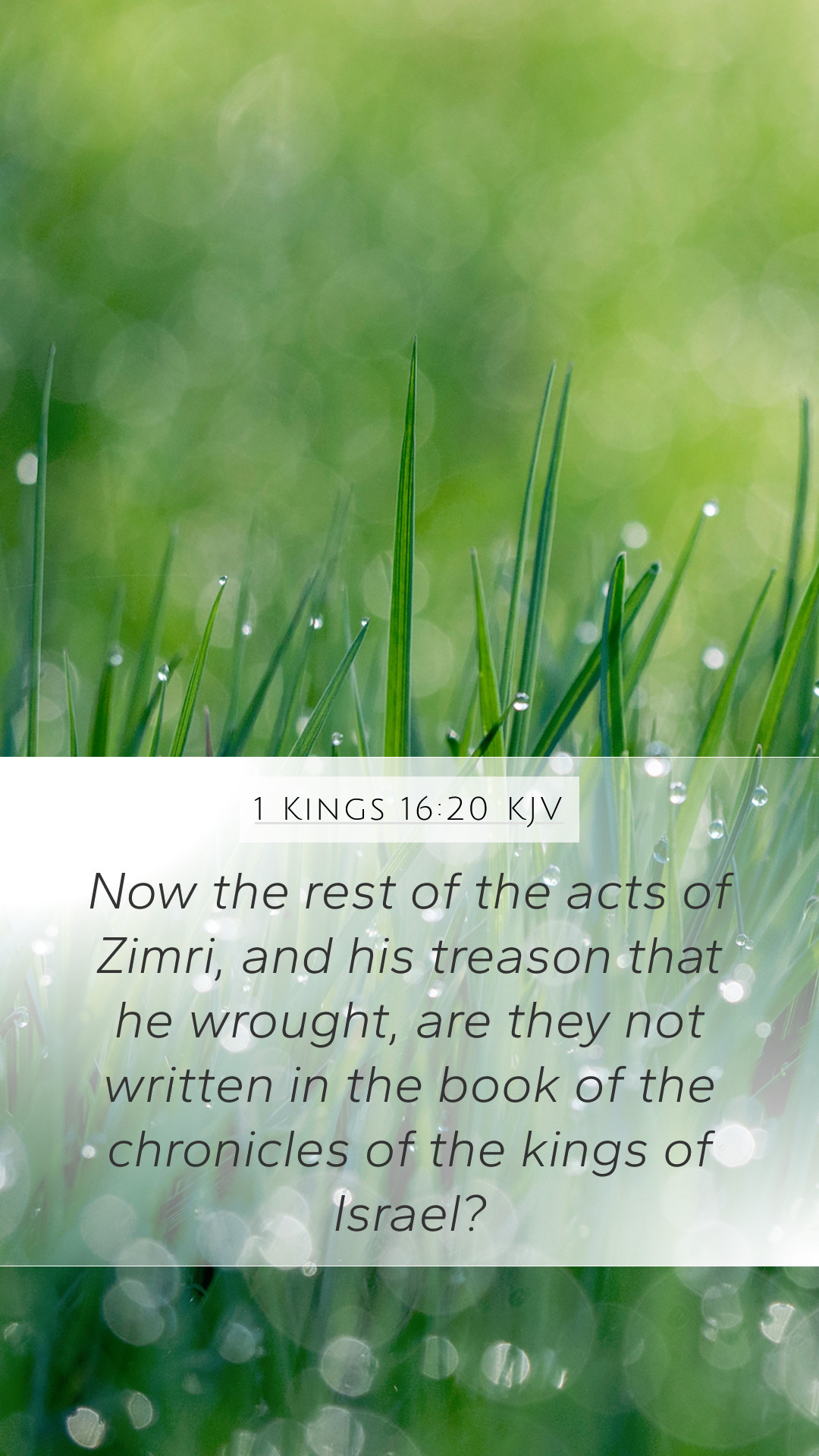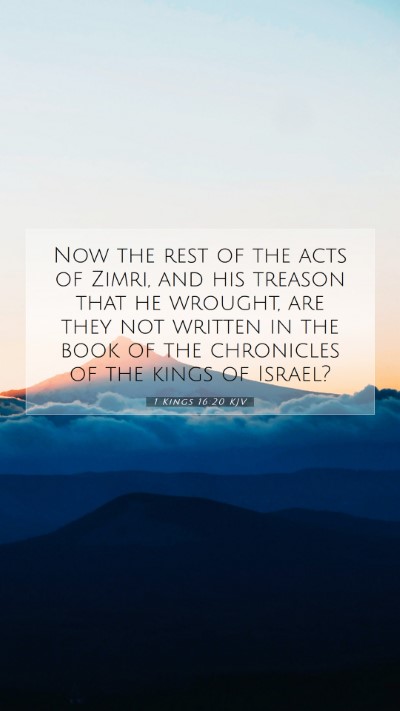Understanding 1 Kings 16:20
In 1 Kings 16:20, we find a brief yet significant account that contributes to the broader narrative of the kings of Israel. This verse is a part of the history detailing the reigns of various monarchs in the Northern Kingdom, particularly focusing on the character and actions of King Zimri.
Bible Verse Meaning
The verse states, “Now the rest of the acts of Zimri, and his treason that he wrought, are they not written in the book of the chronicles of the kings of Israel?” This verse encapsulates three critical aspects of the teaching found within the scripture.
-
Historical Context: Zimri became king after assassinating Elah, the son of Baasha, marking his rule as one filled with treachery and bloodshed. This historical context emphasizes the political turmoil and instability prevalent in the northern kingdom during this period.
-
Character Insight: Zimri's reign lasted only seven days before he took his own life, demonstrating the consequences of treachery and the divine justice that awaits those who turn away from God’s laws. Commentators such as Matthew Henry highlight that Zimri's downfall serves as a cautionary tale of the ephemeral nature of power when not rooted in righteousness.
-
Chronicles Reference: The mention of the book of chronicles signifies that these events were recorded for remembrance and warning. Albert Barnes suggests that these records serve as an eternal testament to the actions that led to divine judgment and the state of the Israelite monarchy.
Bible Verse Interpretations
The brevity of Zimri's rule is interpreted by Adam Clarke as indicative of God's disfavor toward those who engage in wickedness to gain power. His actions echo the Biblical principle that those who mislead others will face dire consequences.
Key Insights from Public Domain Commentaries
Commentary by Matthew Henry: Henry emphasizes that Zimri's rapid rise and fall remind us of the transitory nature of human authority, especially when garnered through deceit. His death serves as a crucial pivot point; it illustrates how swiftly the judgment of God can alter the course of events.
Commentary by Albert Barnes: Barnes highlights the importance of remembering these accounts within the broader narrative of Israel's sinfulness and God's justice. He urges readers to draw parallels with their own lives, understanding that treachery leads to ultimately unsustainable outcomes.
Commentary by Adam Clarke: Clarke suggests that the phrase “the book of the chronicles” indicates authoritative records maintained to evaluate the reigns of kings. He connects Zimri’s fate with a broader theme found throughout Kings: the theological underpinning of history.
Bible Verse Explanations
This passage invites profound reflection on the nature of leadership and the divine oversight of human governments. The brief mention of Zimri's rebellion primes readers to question the consequences of sin, particularly in positions of power.
Application to Daily Life
The lesson in this scripture is applicable today, where unethical leadership can have devastating impacts. It serves as a call to uphold integrity in all aspects of life, illustrating that the seeds of righteousness yield long-lasting fruits, while deceit ultimately leads to ruin.
Cross References
- 1 Kings 15:27-30: Discusses the actions of Baasha, Zimri's predecessor, setting a precedent for treachery.
- 2 Kings 9:31-37: Provides insight into the eventual downfall of the house of Ahab, further emphasizing God’s judgment.
- Proverbs 11:3: “The integrity of the upright guides them, but the crookedness of the treacherous destroys them,” reinforcing the wisdom underlying the fate of Zimri.
Conclusion
In examining this verse, believers are encouraged to reflect on the principles of justice, the consequences of our choices, and the importance of living a life aligned with Biblical teachings. Engaging with this scripture provides valuable insights into the nature of God’s sovereignty and the impermanence of earthly power—essential themes for anyone studying the Bible.


